

CAMP WALTER JOHNSON CELEBRATES 50 YEARS
BY MAJOR FRANK DURACHER
With a half-century of memories and spiritual victories, Camp Walter Johnson (CWJ) drew former campers, staff, and divisional leaders together for a Labor Day weekend celebration in the North & South Carolina (NSC) Division.
Divisional Sergeant Major Ed Laity got the party started by welcoming the capacity crowd and introduced a roll call of flags brought forward by each corps as delegates stood and cheered wildly.
Presenting her camp testimony, Abbie Aguilar explained to those present she attended her first year of camp as a Sunbeam, later joining the staff at age 15. She has been devoted to this special ministry every summer since.
“You don’t work at camp for the money but for the chance to pour back into children and adults what was shared with you,” Abbie said. She even met her future husband while on camp staff, but that was a bonus!
Commissioner Kelly Igleheart, territorial commander, then made a surprise announcement, presenting the Others Award to David Appleby of the Columbia, South Carolina Corps, a longtime mentor to hundreds of converts to Christ.
The territorial commander shared about David’s extraordinary mentorship of others, providing transportation to corps meetings, and even driving them to the Trade department in Atlanta to get their own Salvation Army uniforms.
Commissioner Donna Igleheart, territorial president of women’s ministries, drew her sermon from Numbers 13, comparing the positive
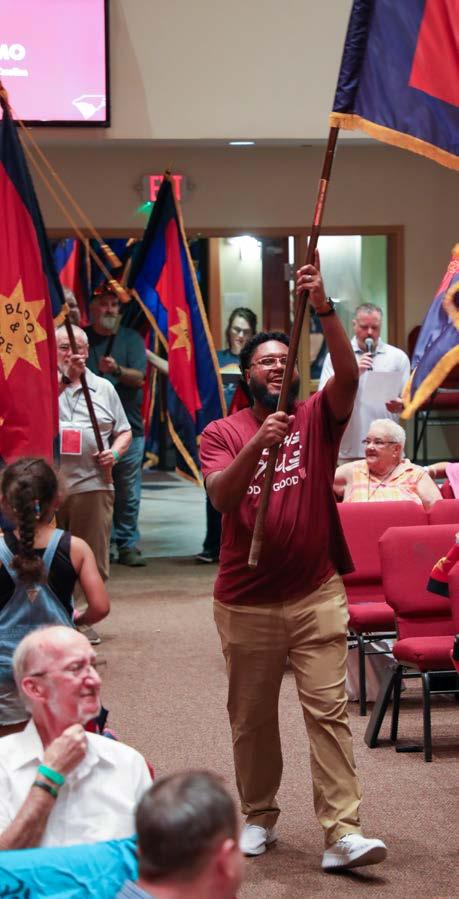
Tulsa Triumph
BY LT. COLONEL ALLEN SATTERLEE
From its corps and Boys & Girls Clubs to its vibrant advisory board and councils and through its vital social services, The Salvation Army in Tulsa has a long history of missional vision and outreach. But none is a stronger expression of how The Salvation Army operates at its best than the ministry and mission working in tandem between the Adult Rehabilitation Center (ARC) and the Tulsa Citadel Corps.
The cooperation between the Citadel Corps and the ARC stretches back many years. Soldiers from the Citadel have traditionally assisted with helping teach Bible and other classes, serving at ARC banquets, as well as many other ways. ARC beneficiaries have attended the Citadel as part of their program, and from that over the years, some have become adherents or soldiers.
Isaiah and Corina Stegall, soldiers at the Citadel and now cadets in the Keepers of the Covenant session, began to form a greater vision for what could be. Both struggled with substance abuse in their past, from which the Lord gloriously delivered them. With hearts for others facing these struggles, the Stegalls made an extra effort to befriend the men of the ARC. They volunteered at the center, invited men over to their home after meetings at the corps, or took them along with them when they went out to eat. As time went on, the men were invited to
join in even more of the activities at the Citadel and the Broken Arrow Corps.
Several of the men became soldiers. That arrangement was starting to take on greater traction until everything came to a screeching halt when the pandemic hit. “For a couple of years I took a break,” Isaiah remembers. “But in ’22 I saw they needed help again.” Then came the moment of truth.
“I came home one day and told Corina they needed an intake coordinator [at the ARC].”
Corina recalls saying, “That’s going to be less pay.” And Isaiah responded, “I know, I know. But you’ve got to think what’s going to happen.”
“I was just so excited.” Isaiah continues. “There’s something so much bigger here. So, [Corina] okayed me. They hired me and now I was really able to pour into these men. At devotions each morning, I’m the first person they see. The first person they see when they want to check into the ARC is a Salvationist. Because of what happened to me, I can tell them about the transformation that can take place.”
With this new involvement, the ties between the Citadel and the ARC grew even closer. Captain Erik Henry, administrator of the ARC, explains, “When our men come in, many have lost everything and feel useless. As they find Christ and find their purpose, they also begin to see they can make a difference in someone else’s
vision of Caleb and Joshua who returned from spying on the challenging but fruitful conditions in the land which God promised to the Israelites. Their report was the opposite of the lack of faith evident in the other ten spies.
“Let’s go!” Commissioner Donna pleaded, citing the insights the two spies discovered: Have eyes to see the goodness of God. Be courageous in the face of challenges. Don’t wait for history to be written; start today. And trust in God’s faithfulness in every circumstance.
One of the most poignant moments came Saturday morning when Commissioner John Busby explained how Walter Johnson came to donate 800 acres of prime timberland to The Salvation Army. As a captain and NSC divisional youth secretary in the early 1970s, he shared from a unique perspective the obstacles and miracles that resulted in CWJ opening in the summer of 1974 (see “The Ripple Effect of Helping Others” on page 6 for this incredible story).
Another sacred period came with the inauguration of the “Carolinas Heroes of the Faith,” a sort of hall of fame for Salvationists who have gone above and beyond in their service to others for the Lord. The first honored inductees are: Major Cecil Brown, Brigadier James Henry, Bobby and Mary Sue Baker, Major Al Smith, and Major John White.
Divisional Commander Lt. Colonel Ronnie Raymer then presented “Where Are We Going?” a comprehensive plan for CWJ that will prepare this holy place for another half century.
“Camp...” continued on page 7
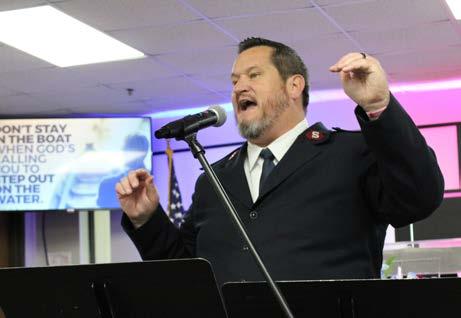
life as well. They relate to the other men in the center, but through the corps, they find ways that they can relate to the wider world. They will leave here eventually, so if they can discover they can connect in their service through Christ, as they do through the corps, they have a greater chance of standing tall in the long run.”
Major Carlyle Gargis, who is the area commander and the corps officer for Citadel, echoes those sentiments. “The men have burned a lot of bridges, but now they want to be about Kingdom work, advancing the good news of Jesus and helping others get set free. So, what we want is not only building them up as great soldiers but folks really investing in their communities and getting their families involved. The ARC and the corps have the common goal of leading people to a saving knowledge of Jesus Christ.
“Tulsa Triumph...” continued on page 4
Photo Credit: Major Frank Duracher
Captain Erik Henry, Tulsa ARC Administrator
Southern Territory Enters Second Year of Territorial Priorities
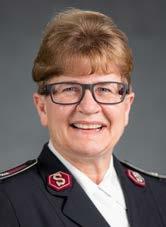
BY COLONEL DEBORAH SEDLAR, TERRITORIAL CHIEF SECRETARY
Greetings USA Southern Territory!
We’ve had an incredible first year focusing on our Territorial Priorities. With this year’s look at Prayer, Discipleship, Leadership Development, and Holiness, all through the lens of “Disciple,” we have witnessed amazing and innovative programs and initiatives in our corps, commands, and communities across the Southern Territory. We’ve shared many ideas and success stories, encouraging one another while continuing to build up the Kingdom of God.
In this next year we shift our focus to “Serve,” delving into Recruitment, Youth, and Mission Integration and Development. While everything we do in The Salvation Army is to Serve God and others, we want to set this time aside specifically to highlight some of the special and creative ways that you are serving in your own communities.
We can’t wait to share and celebrate what God is doing through His Salvation Army as we Serve Him and others in everything we do. May it be All for Jesus!
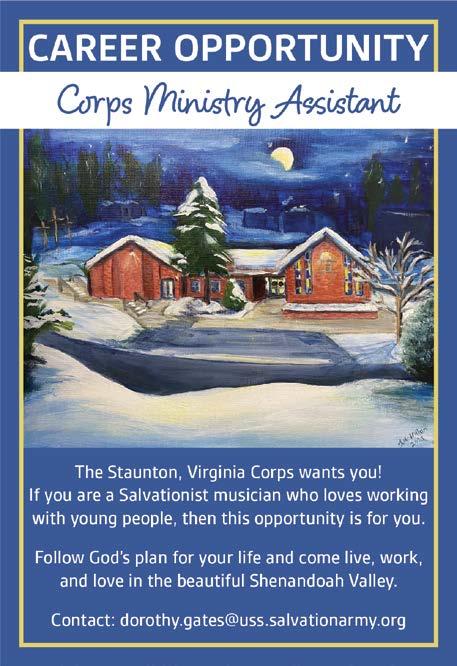
Rome, Georgia’s ‘Rosie the Riveter’ SERVE
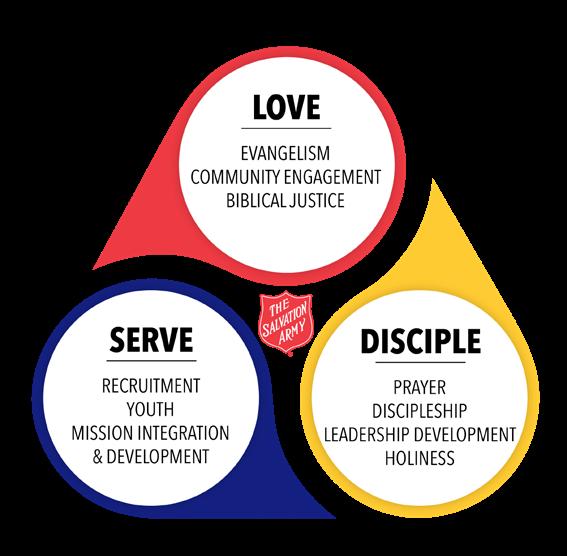
BY REBECCA MCALLISTER AND MAJOR HANK HARWELL
On April 10, 2024, in Washington D.C., Barbara Esler, a member of Rome, Georgia’s Salvation Army Women’s Auxiliary (SAWA), along with other legendary “Rosie the Riveters” from World War II, received a significant honor: the Congressional Gold Medal, one of the nation’s highest civilian awards. This honors the American women who joined the workforce or volunteered in support of the war effort during WWII.
“Rosie the Riveter” is the iconic title given to women who welded ships, worked on airplanes, rolled bandages, and did a variety of other jobs to help in the war effort. Barbara was one of the younger “Rosies,” volunteering and helping the war effort by taking her little red wagon through her neighborhood and collecting recyclables such as tin cans, aluminum foil, newspapers, and scrap metal. She also sold war bonds to family members through her school.
With her allowance, she purchased savings stamps, which she pasted into a book. Once full, that book could be turned into a war bond. Those war bonds eventually helped pay for her college tuition.
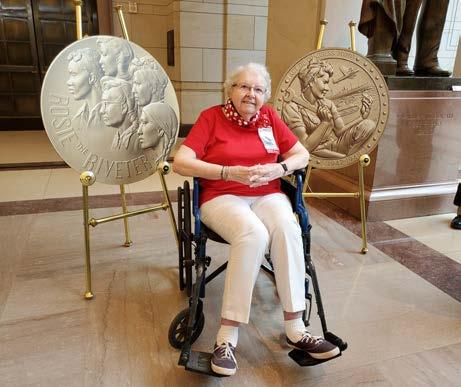
Commissioner Kelly Igleheart, Territorial Commander
Colonel Deborah Sedlar, Chief Secretary Lt. Colonel Mark Israel, Publisher
Bernie Dake, Communications Director
Kristin Mudge, Editor
Brad Rowland, Staff Writer
Stewart Art & Design, Layout and Design
Wallace Graphics, Printing and Shipping
Published by The Salvation Army USA Southern Territory 1424 Northeast Expressway Atlanta, GA 30329 USA
Phone: (404) 728-1300
Email: kristin.mudge@uss.salvationarmy.org http://southernspiritonline.org
All materials are copyright of The Salvation Army USA Southern Territory and cannot be reproduced without permission. For further information or to donate, please visit: www.uss.salvationarmy.org
Barbara has been a member of the Rome SAWA since 2018, when she was voted in as treasurer at her first meeting, continuing in that position for many years. Her daughter, Rebecca McAllister, a SAWA member since 2013, encouraged her mother to volunteer with the group when she retired and moved to Georgia to be closer to family.
“Barbara and Becky are enthusiastic members who refuse to sit on the sidelines and are motivated to make a difference in our community,” says Major Eunice Harwell, corps officer and The Salvation Army’s representative for the Rome Women’s Auxiliary. “We are thrilled for Barbara to receive this honor, which speaks to her spirit of volunteerism throughout her life. It is a privilege to be able to work alongside them.”
Barbara and Rebecca attended the ceremony at Emancipation Hall in the United States Capitol building along with over 600 people, receiving a special tour of the East Wing and
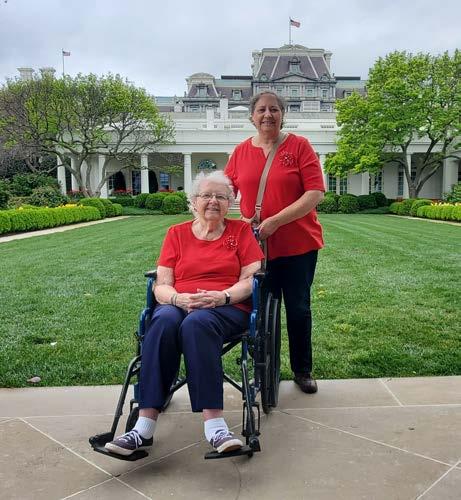
central White House the next day.
The Rosie the Riveter Association has a Rome Chapter, and members like Barbara are referred to as “Rosies.” Their daughters – such as Rebecca – are called “Rosebuds,” while their sons are referred to as “Rivets.”
Barbara Esler and her daughter
Rebecca McAllister traveled to Washington, D.C. where Barbara was named a “Rosie the Riveter.”
Barbara Esler is awarded the Congressional Gold Medal for her efforts during World War II.
FedEx Donates 25th Disaster Response Vehicle
BY DON FELICE
On August 15, The Salvation Army celebrated the dedication of a new emergency disaster vehicle, generously donated by FedEx, with a ribbon-cutting ceremony. This vehicle marks a significant milestone as the 25th emergency disaster vehicle donated by FedEx to The Salvation Army, a testament to the long-standing partnership between the two organizations in their shared mission to provide disaster relief.
The ceremony was attended by a host of distinguished guests, including representatives from FedEx, The Salvation Army’s National, Territorial, and Divisional Headquarters, local government officials, and members of the St. Marys, Georgia community.
Shane O’Connor, communications advisor for FedEx, represented the global logistics giant at the event. He expressed FedEx’s deep appreciation for The Salvation Army’s tireless efforts, saying, “On behalf of 500,000 FedEx team members across the world, I want to say a heartfelt thanks to The Salvation Army. You are saving lives and making a difference, holding people up at the worst possible time in their lives. It’s just amazing all that you do.”
Alise Pate, service center director for The Salvation Army of St. Marys, expressed her excitement and gratitude for the new vehicle, highlighting its importance to the community and beyond. “We are so thankful to FedEx for blessing us with this vehicle, allowing us to serve our community—not just here in Camden County, but anywhere we are called upon. We will go and serve, because that’s what The Salvation Army does—we go help people in need, especially when they’re at their most vulnerable.”
Major Barry Corbitt, general secretary for The Salvation Army’s Georgia Division, spoke to the vehicle’s strategic importance in disaster response. “There is tremendous joy to be found
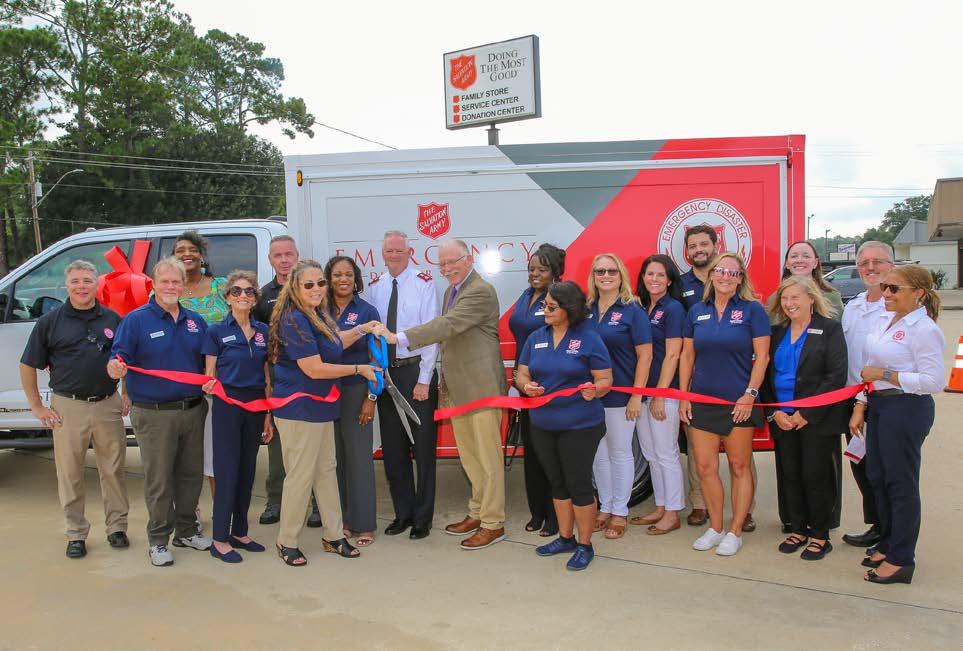
in being able to go to people who are hurting, and that’s where this new vehicle comes in. This rapid response vehicle is perfectly designed for disaster response—it’s a winning design specifically made to give us that quick-strike capability. It gets us into places where larger units couldn’t normally squeeze in. So, I say a heartfelt thank you to our friends at FedEx.”
The event was also attended by key representatives from The Salvation Army’s National Headquarters, including Miranda Pop, emergency disaster services program specialist, and from Territorial Headquarters, including Jeff Jellets, emergency disaster services coordinator, and Tyra Gore, assistant emergency disaster services coordinator.
Along with Georgia Divisional and local leadership, Joseph Barnum from the Georgia Emergency Management Association, Camden County Emergency Management Director Chuck White, and members of the Camden County Chamber of Commerce and Camden County Commissioners, also participated in the ceremony, underscoring the strong local support for The Salvation Army’s mission.
This new emergency disaster vehicle will enhance The Salvation Army’s ability to respond swiftly and effectively to disasters, both locally and wherever the need arises, ensuring that communities receive critical support when they need it most.
The Road to Recovery in Rolling Fork
BY MICHELLE HARTFIELD
While many disasters garner national and even international attention, the greatest effects are felt at a local level. The damage and loss are felt immediately, but the impact lasts a long time and usually requires years of recovery effort. This is one of the reasons The Salvation Army puts a focus on the full life cycle of disaster recovery and not just immediate response.
It is often common for communities to struggle with recovery after a disaster, even when all other forms of assistance are exhausted. In March 2023, a series of tornadoes ripped through Mississippi, causing damage across a 200-mile path. The town of Rolling Fork saw entire neighborhoods leveled in seconds, and recovery is still underway well over a year later.
The Salvation Army often joins other non-profit and community partners to identify disaster-related unmet needs and coordinate resources to assist individuals with recovery. In Rolling Fork, a dedicated case manager works with survivors to oversee these projects and guide them through the process.
Betty was all smiles as she welcomed Salvation Army representatives into her brand-new home. She and her husband were able to move in on June 3, 2024. Her grandson, Baylor, who is excited to have his grandparents back in town, played nearby as she told her story.
After the tornado, their house was uninhabitable. Betty’s husband relocated to Jackson, MS for work, and Betty stayed behind to manage insurance claims and all the paperwork and minutiae to begin the recovery process. After more than a year of living apart, they were thrilled to move into their new home and be back together as a family.
“We really appreciate what you are doing and have done,” Betty shared. “You are still here, and that means a lot.”
Dianne, one of the case managers handling long-term recovery in Rolling Fork, shared some of the issues residents still face. Many of them are still in FEMA provided trailers, but deadlines to move are looming. “Even if they could afford rent,” said Dianne, “there is no available housing. There are several committee-funded builds underway, but it’s a slow process.”
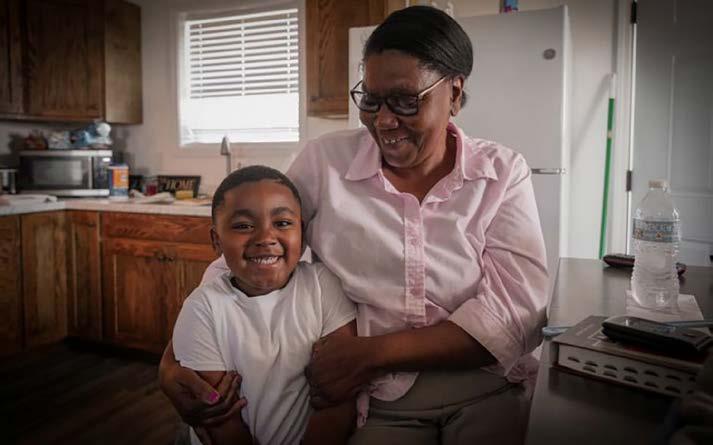
Peter was one of the first to move into his rebuilt home in March. He recalls the night of the storm and being woken up by his wife just in time for them to rush to the bathtub for shelter. The house shook as if it was being pulled up around them, and suddenly they were standing in the rain with no roof over their heads.
The road to recovery has been winding, but Peter is happy to have survived the storm and looks forward to settling back into a new normal as the community he loves rebuilds. “Thank God,” he said as he showed off his new house. “I have nothing but good things to say about The Salvation Army.”
All disasters begin and end at a local level, and The Salvation Army’s Alabama–Louisiana–Mississippi Division remains dedicated to recovery in Rolling Fork and other areas affected by the Spring 2023 tornadoes.
Photo Credit: Don Felice
Betty and grandson, Baylor, enjoy her new home in Rolling Fork, MS.
Fine Arts Camp Meets With ‘The Chosen’
BY JOSHUA MUIR AND BRAD ROWLAND
In partnership with the creators of “The Chosen,” the third annual Camp Hoblitzelle Fine Arts Camp (CHFA) took place at The Salvation Army’s camp in Midlothian, Texas from July 21-31, welcoming more than 100 budding actors and filmmakers from across the country and beyond.
“At Camp Hoblitzelle, our vision and mission are to create experiences that transform lives,” says Casey Bilbrey, director of operations for Camp Hoblitzelle. “I believe CHFA is something that absolutely does.”
Young people ages 13-25 enjoyed ten days fully immersed in both film and theater tracks, providing unique and behind-the-scenes access to filmmaking, sound design, editing, acting, musical theater, and more, all under the guidance of industry professionals and crew from “The Chosen.” Throughout this transformational experience, students trained in a positive, professional, and Christ-centered atmosphere.
“It was really cool getting to work with real equipment for the first time and learn alongside actual professionals,” said Abigail, a theater major from North Carolina. “I could ask questions to working actors who are pretty well-known.”
“I’m a shy person and was nervous about coming to CHFA this week,” said Emory, a theater major from Winchester, Virginia. “I made some great new friends, and the opportunity to work alongside ‘The Chosen’ was amazing.”
Camp Hoblitzelle staff created CHFA in response to The Salvation Army’s partnership with “The Chosen” and Out of Order Studios as a
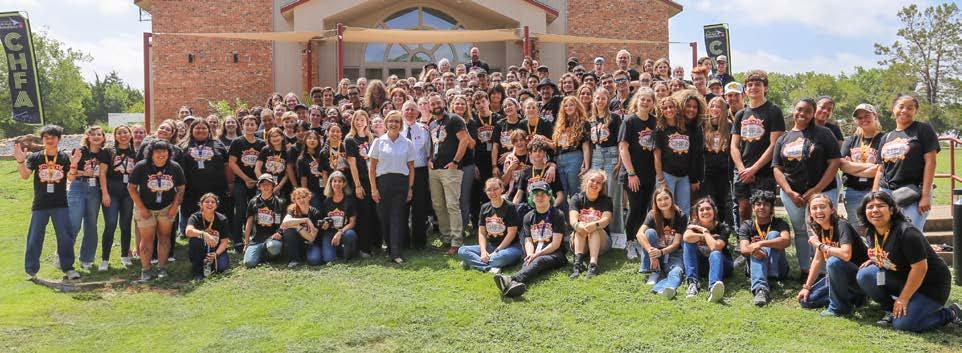
chance to provide a unique opportunity to tap into the talent coming to this location. Many members of the cast and crew donated their time to teach young people their craft and how to live out their faith through theater and film.
“CHFA is a place where passion meets opportunity,” Bilbrey says. “Passion can be found in many places, but sometimes opportunity and mentorship are difficult to find for students. We are very blessed that we can give students opportunities on actual film sets and sound stages. It is unique, and we can provide a safe environment connected to a loving God and be intentional about surrounding students with industry professionals who are worthy mentors.”
2024 marked the first time CHFA included college-age students. Bilbrey indicates future partnerships are being discussed with universities, only fueling the growth of fruitful relationships. Eighteen Salvationist delegates attended CHFA in 2024, and Salvation Army officers provided spiritual leadership throughout the week.
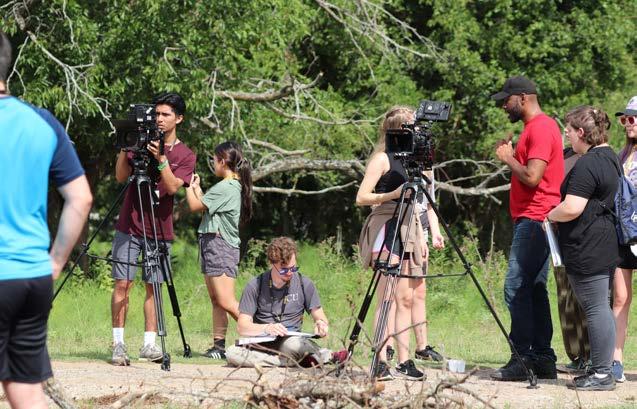
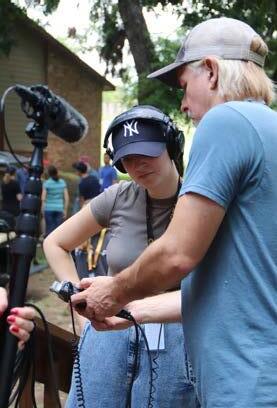
“Tulsa Triumph...” continued from page 1
The relationship we have is the best of the best, and we take advantage of it.”
The men of the ARC have the program that addresses their needs for rehabilitation including spiritual needs, Bible classes, work, counseling, health care, and other classes. That alone is challenging for many of them, some of whom come into the center after many years of substance abuse and struggles. The involvement at the corps flows naturally from that, so each builds upon the other for the benefit of the man.
As the men mature in their faith and are ready for more involvement in the corps, the Battle School is an option many take. Partly a recruiting class for soldiership, partly a discipleship class, and partly a training for ministry, the Battle School’s goal is to equip the person desiring to be a soldier with what he or she needs to understand being a Salvation Army soldier is to be fully engaged in the mission of the Army to win souls and be a true disciple of Jesus Christ.
In the past year, with the officer leadership, the ministry of the Stegalls, and the welcoming and commitment of the already existing soldiery of the Citadel Corps, the level of integration of the men of the ARC into all levels of Army activi -
ty has risen to new heights. Not content to go to just ARC Camp, Captain Henry encouraged the men to also attend the divisional Men’s Camp.
There have been bumps along the way. Some men have relapsed, and that can be heartbreaking. Sometimes people who have not experienced issues such as substance abuse in their families have trouble understanding how difficult the road to recovery can be. And there are no quick fixes or easy answers. The road downhill was a long, hard one; the road to recovery can be just as lengthy and much more challenging.
Communication is a key issue between all those involved in leadership. Sometimes priorities clash and allowances need to be made. Problems have to be ironed out. In the case of Tulsa, one of the major keys to success has been the excellent communication and shared priorities of the ARC and the Citadel Corps.
While doing the interviews for this story, it was interesting to note how the individuals shifted from talking about the ARC and the corps in a seamless fashion. Just like our two hands work together, in the minds and hearts of those involved there was little thought about who did exactly what—just that the work was done. And through it all, God gets the glory.
“This is something I would have absolutely loved as a teenager or young adult,” said Katelyn Ljungholm, program coordinator for Camp Hoblitzelle. “It’s a safe space, but you’re also creating a network and finding opportunities that you can’t get anywhere else. We had some college students tell us that they learned more in ten days than they had in film schools.”
James, a film major from Houston, summed up his CHFA experience by saying, “Being on a live set and working with actual actors and crew was really inspiring. I’m excited to grow my faith and passion for film together, and I’m so thankful for this opportunity.”
A highlight of the week was a backstage tour and a chance to witness a key scene of “The Chosen” being filmed. Dallas Jenkins, creator and director of the project, encouraged the students on the set visit.
“This is the first step, watching and observing,” Jenkins said. “If you put your all into it, you really are curious and really are seeking to understand, seeking to learn and not thinking that you’re smarter than everyone else, you really do have a chance. I’m so glad you guys are here.”
The week culminated in a live production combining several film segments with musical theater numbers, giving everyone a chance to perform for each other and for visiting family and friends.
“We refer to our students as world changers, and we believe once you connect them with mentors to share these skills, that is where the transformation and change can begin in a student’s life,” said Bilbrey. “That is the idea behind CHFA, and we’re excited about where it is going in the future.”
CHFA will return in 2025, so make your plans now!
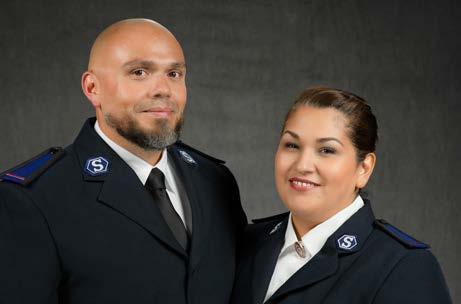
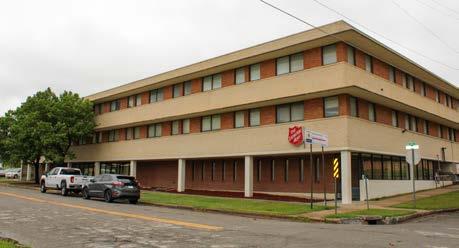
Cadets Isaiah and Corina Stegall, members of the Keepers of the Covenant session of cadets, entered training from the Tulsa Citadel Corps.
The Tulsa Adult Rehabilitation Center boasts a unique and flourishing partnership with the Tulsa Citadel Corps.
Photo Credit: Joshua Muir
Photo Credit: Vanessa Kinsala
Photo Credit: Vanessa Kinsala
Tulsa Testimonies
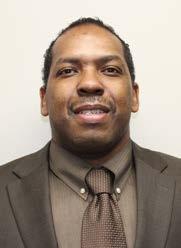
JUSTIN NANCE
My marriage fell apart after twenty years. I was totally devastated. My heart was broken to pieces. At that time, I was building a trucking company so I could leave a legacy for my daughters. It left me mentally unstable. I was never into hard drugs, but I just couldn’t get it together. It hurts me that I can’t be part of my daughters’ lives, to be there for my girls. I believe that God is going to restore things somehow.
Then the Lord led me to the ARC. The Lord has made it clear to me since I have been here that I have a calling. I have been focused on the Lord, on His Word day and night. I spend time in the chapel, and He’s speaking to me through His people.
God sends people to me. I try to encourage the other guys and tell them to bring everything to the Lord and leave it in His hands. We need to develop a routine where you spend time with God.
I spend time at the Citadel. I’m there every Sunday and am active with whatever I can do. I feel strongly that God wants me to be a soldier and an officer. I believe God is going to redeem all this that has gone wrong. I believe God wants me to be a warrior in His Army, The Salvation Army. First, that means being a good follower but also doing what I can to develop my leadership. That involves recruiting others.
Jesus Christ is my life. He is everything. He will show up tremendously in a person’s life and turn it around. I am a witness to that. I’m excited about being a soldier, about this path that the Lord has set out for me. I want to help the Army do what it can, to do its mission. I don’t want what Justin wants. I don’t want to do what Justin wants to do. I want what God wants from me.
CHRISTINA THROCKMORTON
My ex-husband came through the ARC in 2017. That’s when I started to learn about The Salvation Army. I was a stay-at-home mom before the divorce, so when that happened, I didn’t know what to do. Someone told me the ARC was looking for an administrative assistant. I was able to get the job and became more involved with the ARC. I saw all they were doing for the men. The light went on, and I could see that God was there and that He could heal them.
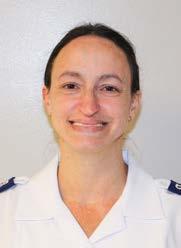
I remarried a couple of years ago to another man who went through the ARC. We started attending church about a year ago. Captains Erik and Michelle helped to bridge the gap between the ARC and the corps. Captain Michelle took me to women’s camp and then to family camp. That helped me to really grow.
I was attracted by the joy that came across from the people in the ARC and then later when I came to the corps. I saw it at the camps I attended as well. I saw it from the officers. Even when they were going through a hard time, they still showed joy.
In time I became a soldier, and I feel God has called me to be an officer, but my husband isn’t ready for that. So, for now I’m content with working at the ARC and attending the corps. I can teach Sunday school, go out and feed the homeless, and just minister wherever I am as much as I can.
I like the way the corps people come over to the ARC and serve at the banquets. They help get our men involved in the corps activities. They invite the men to men’s camp and all the things they have to offer.
God has done so much in my life. I made a lot of mistakes, including fighting my own temptation to abuse a substance. He is opening doors for me to repair relationships with my family. He has said, “This is the time,” and opened the door.
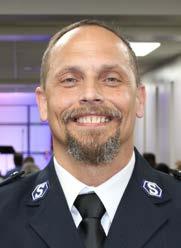
SCOOTER LEWIS
I have struggled with substance abuse most of my life. I owned a fairly large company but also worked for some other large companies. I found out it didn’t bring me happiness, and I became hopeless. Things happened between my family and me, and I went into a deep depression. A friend of mine asked me if I wanted to try methamphetamines. Shortly after, I was dependent on them to cover up my wounds. After two years, my money was depleted; I became homeless and hopeless. I’d go into rehab, do well for a while, but fall apart because I knew nothing about faith.
I hit a roadblock. It was a vicious cycle for years. I couldn’t stop using. I was homeless with nowhere to turn and no friends. I tried to take my life with fentanyl. I woke up eight hours later, and the law was there with some warrants for my arrest. I went to jail for six months. I had some violent felonies that should have taken me to prison for five years.
I had a Bible in my cell the whole time, but I never thought about picking it up. I was reading a John Grisham book and came across the words, “You have to start praying.” I didn’t think much of it until later in the book I read, “You have not started praying. You have to start praying now.” So, I just asked God, “You apparently have something for me. You’re speaking to me.” Then I went to trial, and they said, “We got you into The Salvation Army.” I didn’t know anything about The Salvation Army except the homeless shelter. They told me it was the ARC, and the people there were talking about the Bible and prayer and that you needed to change.
They took me to a retreat at Camp Hoblitzelle with some of the other guys, and in one of the meetings something happened to me. I just started crying out to the Lord. The other guys said it went on for a long time. I was begging Him to change my life. He hit me with the Holy Spirit. I remember that.
I started to devote myself to God, started to really pray to Him. Isaiah, who’s now my best friend, told me to start reading the Gospel of Mark. I didn’t do it. I told God, “I don’t like to read. There’s no way I can comprehend it.” So, I started with five minutes. But I kept telling God I didn’t want to do it. Then one night I looked at my clock and I had been reading for over an hour! I was really drawn to the Word after that.
I started witnessing to people. Then I started doing devotions. I had times when I was a little confused with what God was doing and got a little mad at Him, but He kept moving me forward. I became a soldier, and I know that God is calling me to be an officer. I’m surprised and happy that He is speaking through me to other people.
Now God has opened the door for me to move into employment with The Salvation Army and out of the ARC. It is amazing because I needed to do that, and I didn’t know how I could. But God answered my prayers.
The involvement in both the ARC and the corps has been life changing with the guys from the ARC. I have come from the deepest, darkest valley a man could come from – absolutely hopeless. But there is a way out and it’s through the Word of God and accepting Jesus Christ as Lord and Savior.

The Ripple Effect of Helping Others The
Development of Camp Walter Johnson
BY COMMISSIONER JOHN BUSBY
The 50th anniversary of The Salvation Army’s Camp Walter Johnson took place over Labor Day weekend 2024. It was my privilege, being divisional youth secretary in June of 1974, to share the story of the camp’s namesake: Walter Johnson. Walter Johnson’s story is a wonderful challenge to all Salvationists to be faithful in helping each person who comes to us in need—it may be part of a ripple effect that leads to something much greater than we can imagine.
Early in Walter Johnson’s life, tragedy struck. Two older brothers were literally playing ball with Walter—he was the ball. A missed catch found him on the ground with a broken back. He was never again able to walk upright. But as sometimes happens, tragedy opened a new door. When Walter graduated from school, his brothers gave him a fully operational sawmill. It was from this gift that Walter Johnson developed his wealth.
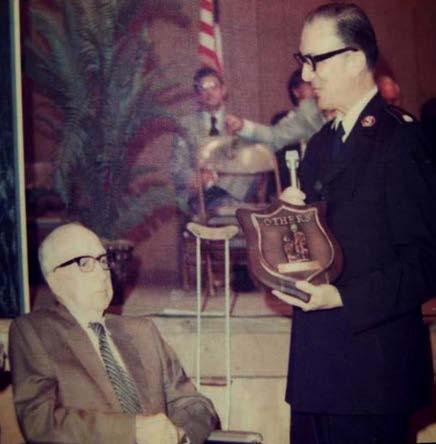
One day, his mill received a rush order for lumber. Walter was informed that a vital piece of equipment necessary to complete the order was broken. He hurriedly took the equipment to a friend’s machine shop for the repair.
Just as the shop owner put his mask on to begin the repair, the front door opened, and a Salvation Army War Cry seller appeared. The shop owner calmly took off his mask and walked to his office to get his money. He gave his donation to the War Cry seller, then walked back to continue his business with Walter.
But before putting his mask back on to finish his repair, the shop owner paused to tell Walter a story.
A 15-year-old boy was having a tough time living with a mean-spirited stepfather. One day he finally decided to run away from home. He began to hitchhike to Texas, planning to fulfill a dream of becoming a cowboy. When he made it to the Mississippi River, he gave his last bit of money in exchange for a ferry ride across. After two days with very little food, no bed to sleep in, and wearing worn-out shoes, he decided to return home.
He made it back to the Mississippi but had no money for the ferry fare. Explaining his situation to the ferry master, the boy was told there was someone who would pay his way on the other side. He was on the ferry approaching the opposite shore when he saw the man in a blue uniform with red epaulets—the corps officer from Vicksburg, Mississippi.
Once they landed, the fare was paid, and the Salvation Army officer took him to the emergency shelter. Two bowls of stew later, the young boy was shown to a bed and given a clean towel. The captain’s good night words included, “I need to talk to you in the morning.”
After the boy recounted his story, the captain gave encouraging words on how to better handle life at home. He was given new clothes, a new pair of shoes, and enough money to get back home.
Pausing for a moment after this tale, the machine shop owner looked Walter Johnson in the eye and said, “I know that story well; that boy was me. Since that time, I promised I would never refuse The Salvation Army when I was approached for help.” He put his mask back on, and the equipment was quickly repaired as a thoughtful – and rather astonished – Walter looked on.
One day sometime later, a bent-over man dressed in overalls showed up at Divisional Headquarters (DHQ) in Charlotte asking to see the man in

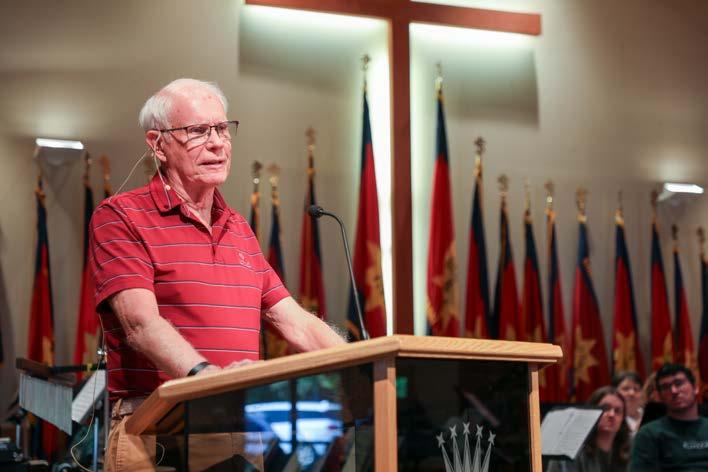
charge. What preliminary words were spoken, I don’t know, but eventually Walter Johnson handed the divisional commander a check for $100,000 and said there would be more coming.
Some years later, Johnson’s business manager reached out to DHQ saying that Walter Johnson was planning to allocate 800 acres of prime timberland in multiple locations around the Carolinas to The Salvation Army in his will. With talks of an Army-owned, specifically designed youth camp already in the works, DHQ asked Johnson’s business manager if any of those properties would be suitable. The response came back that one site was on the water and would make an excellent location for a camp.
The Salvation Army asked the business manager if he would approach Mr. Johnson about giving half of the property now for the development of a camp. The reply was even better than anticipated: they could have it all now, without delay! The camp site was retained, and the rest was sold to pay for the camp’s development.
Now, 50 years later, we can thank a Salvation Army captain from Vicksburg, Mississippi who helped a runaway. We can thank God’s timing for a War Cry seller faithfully making his rounds and arriving at a machine shop where the owner was willing to stop an urgent task to buy a War Cry, fulfilling a promise made long ago. All put together, it produced a ripple effect that brought Walter Johnson to a place that made it possible for thousands of young people to experience joy and God’s life-changing presence at Camp Walter Johnson.



Commissioner John Busby (then Captain John Busby, NSC divisional youth secretary) shares who Walter Johnson was and his incredible gift to the division in 1974.
Walter Johnson is presented with the “Others” award for his incredible contribution to the ministry of The Salvation Army.

Saturday afternoon’s venues shifted to the pool, gym, and the ball field—the latter being the site for a Carolina Carnival. Eight corps musical groups provided outdoor entertainment, performing “Sights and Sounds of the Carolinas.”
Dinner that evening was “A Taste of Carolinas”—ten canteens and cooking stations from corps around the division each featuring a local dish or delicacy.
Major Don Hostetler gave a challenge to conclude Saturday night’s “Carolina Music & Arts Festival”—a musical convocation of talent giving total praise to God. The major outlined the three movements of “To the Chief Musician,” which the divisional band performed following his message.
“Like David’s command in Psalm 51, this camp’s anniversary is an invitation to focus our attention on the Almighty,” Major Don explained. “This is a ‘Call to Worship,’ to thank God for the thousands who have found Him here. ‘The Chief Musician’ is God Himself!”
The territorial commander’s Sunday sermon was a continuation from Commissioner Donna’s message from Friday night. Commissioner Kelly Igleheart spoke with the title, “As for Me and My House, We Will ________.”
“I intentionally leave that title blank because all of you have a decision to make,” Commissioner Kelly said. He went on to proclaim: God
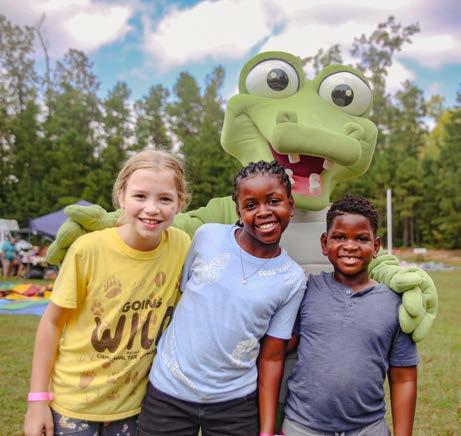

has always been faithful; God has always met His people in special places (like CWJ); and God has always called us closer to Him.
“This weekend, God brought us here for a walk down a 50-year memory lane. But the question for us this morning is: what will your commitment be from here on out? ”
Joshua doubted the people’s intent to serve God simply because of the level of their commit-
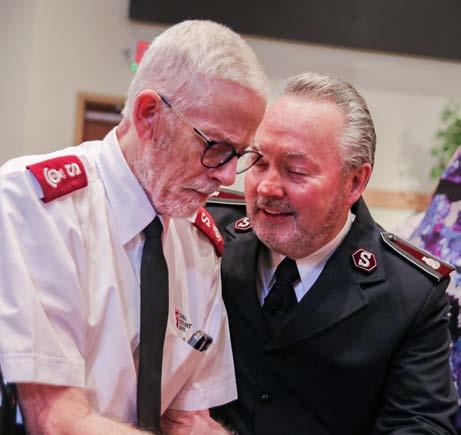
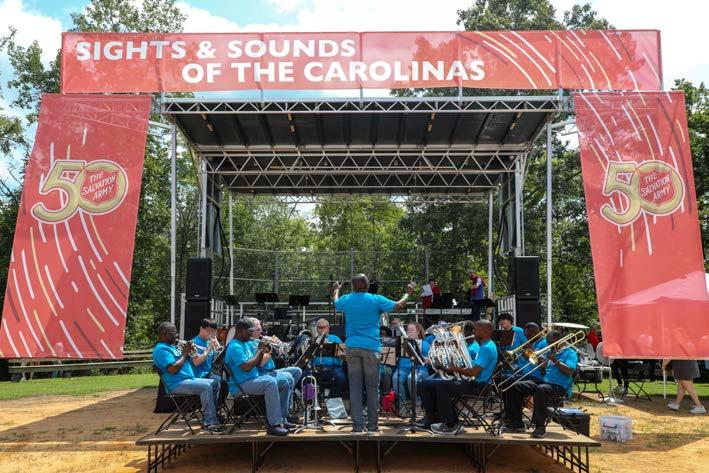
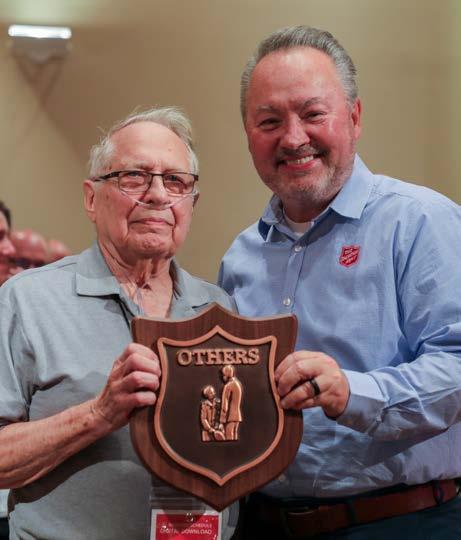
ment in the past. “So, just how serious are you? Who are you going to serve? Are you going to be resolute about it this time? Because our God requires a full surrender.”
Commissioner Kelly brought the invitation to come forward by saying, “I can’t think of a better birthday—the 50th anniversary of this camp—to make that full surrender to the Lord!”
The Holy Spirit’s presence was palpable, scores of the division’s young people leading the way forward through their solemn declarations to serve God.
Soon entire corps families gathered throughout the chapel to make a similar promise: “As for us and our corps, we will serve the Lord!”
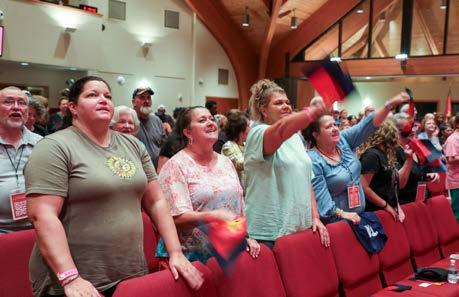

“Camp...” continued from page 1
Photo Credit: Abbie Aguilar
Photo Credit: Abbie Aguilar
Photo Credit: Abbie Aguilar
Photo Credit: Major Frank Duracher
Photo Credit: Abbie Aguilar
Photo Credit: Major Frank Duracher
Photo Credit: Abbie Aguilar
Photo Credit: Major Frank Duracher
God is in the Details
BY KRISTIN MUDGE
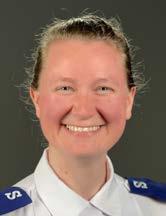
I tend to be a planner. I’m not a super in-depth detailed person by nature, but I’ve cultivated a logistical mind through my various vocational experiences. I like lists and having all the information in one place easily within reach. Inevitably someone will ask me for details, and deep down I secretly pride myself on having the answers.
A friend who works in the technology field recently asked me why I needed a physical calendar planner. Why not just use one of the many available and proven purpose-built computer applications to order my life? I explained that I find it much more satisfying to tear out a page (or fold up a sticky note, my personal favorite!) and toss it in the bin than it is to delete a to-do item on my laptop. Plus, if the battery runs out or the technology fails, I still have access to all the information that my brain was just too full to contain while writing down the details.
As a relatively organized person, I like to know what lies ahead, and that applies to my life as well. As we all do at some point, I learned a long time ago the hard truth that things would not always go according to my plans, and I’ve grown and adapted to be okay with that. But
every now and again my life becomes so unraveled, so last-minute, and so far from any sort of order that my brain just fizzles, and my soul feels stretched to its limit.
Just in the past couple of years my projected personal timeline has been upset and rewritten dozens of times. I know God has a plan. I know He’s already taken care of the details. But in those moments of turbulence, it is still a struggle to surrender my control and let go of what I thought the plan was or what I believed it should have been.
But that is exactly what we are called to do. Matthew 6:34a says, “Therefore do not worry about tomorrow, for tomorrow will worry about itself” (NIV). Don’t worry; God’s got it. He’s got us. And He is much better at planning and logistics than we could ever fathom.
Looking back, without fail, I can see where God’s version is so much richer, so much better, and so much more beautiful than whatever plan I had in mind. And whenever I reach a topsy-turvy moment, the sooner I recall His unlimited faithfulness and surrender to His flow, the sooner I can start to see the beauty at work in His details. Perhaps flexibility should be considered an official spiritual gift!
God will handle all the details. We just have to rest and rely on Him to take care of things His way and in His time.
A column exploring how the principles, practices and culture of our military services might apply to The Salvation Army
Hallowed Ground
BY DR. STEVE KELLNER
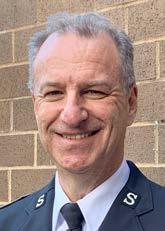
I was privileged as a military bandsman to play for hundreds of funerals at Arlington National Cemetery. Arlington has a special place in our national consciousness because it is near Washington, D.C., and because so many well-known people are buried there, including presidents, high ranking military leaders, and, by contrast, the nameless soldiers interred in the Tomb of the Unknown Soldier. I often read the nearby identical grave markers during funerals and noticed the lowliest privates buried right next to famous four-star generals. At Arlington, everyone is just a soldier.
Funerals at Arlington are beautiful and quite moving. A horse-drawn caisson transports the casket from the chapel to the graveside accompanied by a somber funeral drum cadence. Once at the graveside, body bearers slow-march the casket from the caisson to the grave, accompanied by hymns from the band. At the end of the graveside service a rifle team fires a gun salute and Taps is played, after which the body bearers fold the flag and present it to the family. It’s like a carefully choreographed, slow-motion military ballet.
Our military services spend this kind of money and manpower on funerals to honor the service of deceased veterans. Of course, anyone willing to give up his or her life for their country deserves such a grand sendoff. But military funerals also have a powerful effect on current service members. They evoke a sense of grati -
tude for the sacrifices made for our country by those being buried, and this is heightened by seeing the thousands upon thousands of similar graves at Arlington. And, somehow, this feeling of gratitude encourages living service members to do their duty and to live up to the standard set by those who have come before them, to not let them down.
Recently, I had the honor of serving as a pall bearer for the funeral of Major David Varney, my “uncle-in-law.” Uncle David, a wonderful saint of God, enthusiastic Salvation Army musician, and encourager to all, was buried at Westview Cemetery in Atlanta, which might be considered the Arlington Cemetery of the Southern Territory. Many Salvationists, from rank-and-file soldiers to well-known Army leaders are buried there, side by side. At Westview, everyone is just a soldier.
Like our military services, The Salvation Army spends money and manpower on funerals at Westview to honor the lives and ministry of fallen officers and soldiers. Uncle David’s committal service filled me with gratitude, not only for his contribution to my life, but through being present on that hallowed ground where I personally knew so many of those buried. At my age, they number in the hundreds at Westview. During the service, to name just one, I happened to look down and see the grave of my boyhood Sunday school teacher, Flora Moore.
The gratitude I felt in that quiet cemetery makes me want to do my duty, to live up to the standard of those who poured into my life. I don’t want to let down the “cloud of witnesses” who have gone before me. I encourage you to reflect on the lives of departed Salvationists who have poured into your life and give gratitude to God. Then, do your duty.
Giving It Away
BY LT. COLONEL ALLEN SATTERLEE
“For Macedonia and Achaia were pleased to make a contribution for the poor among the Lord’s people in Jerusalem” (Romans 15:26).
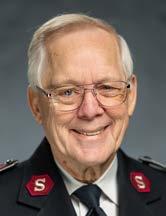
When Gentiles were incorporated into the early Church, it created a chaotic blessing. Because Judaism, with its ceremonies and laws, had been the framework for understanding the one true God, it was difficult to know how to work with people who had no knowledge, no allegiance, and no love for what had always been so carefully observed. It is no surprise that there was some confusion and friction. At the same time, no one could deny God was at work as Gentiles by the thousands were turning to Christ. But for a good Jew who had been told that Gentiles were filthy dogs, to now sit down with them at a picnic – that was going to take some getting used to.
The Gentiles also had mixed feelings about their brothers and sisters in the Faith. They traditionally had thought the Jews to be snobs, entitled, and just plain weird.
As the Church began to take shape, bigotry began to subside, although pockets of it remained. The stronghold among the Jews was Jerusalem. Paul, that former zealous Pharisee and now apostle to the Gentiles, saw an opportunity through a tragedy. A famine had devastated the poor in Jerusalem. What better way to show that the Church was a genuine new creation in Christ than to ask people who knew they were formerly detested by another ethnic group to take up a collection to meet their need?
It wasn’t that the Gentiles were lacking their own poor, but the body of Christ was already showing it could look beyond with a love that defied anything the world had seen before in its selflessness and sacrifice. The suffering of the Jewish Christians in Jerusalem was severe. Whether or not they were holding on to their prejudices, it was their need that was speaking. And that is what the Church around the Mediterranean world heard.
Paul and other believers presented the need, but getting the money there presented as much of a problem as convincing people to give. There were no money transfers or QR codes; there were no checks or even paper money for ease of transport. The gift would be in coins that would have to be concealed so as not to attract attention from robbers or the extortion of soldiers and tax collectors. Would some believer, himself desperate for money, betray the ones carrying the funds for a cut of the money with a band of thieves along the way? The long journey took weeks; people often got sick or died on the way. There were many things that made the transport of money perilous. Even so, the collection was taken and delivered.
When the Church sought to care for the needs of the suffering saints in Jerusalem, it demonstrated the first tangible lessons in Christian brotherhood: Believers love people who might not love us back. We give even if we can’t afford to give because the need exists. We love and care for people who do not look like us, who have different cultures than ours, and who speak different languages. We provide for those who can never pay us back, not because we will receive any benefit but because they are part of the body of Christ. We give it as a gift to the Lord, releasing it fully into His hands for His purposes.
What had Jesus said? “For where your treasure is, there your heart will be also” (Matthew 6:21). Or can we say, where our hearts are, our treasure will follow?
WE ARE AN ARMY!
Salvation on the Side of the Road
BY MAJOR FRANK DURACHER
Dan Duncan’s faith journey began when his mom pulled the car over to the side of the road. He was a young lad, but his curiosity about what his officer-parents were preaching and living was becoming stirred. So, he began to ask questions.
“I was sitting in the car with my mother driving,” Dan recalls. “I asked her about the nature of Heaven, how sins were forgiven, and what Jesus could do about future sins.”
Dan’s mom, sensing the Holy Spirit’s presence in her son’s questions, eased the car to the shoulder of the road and asked him if he would like to make a commitment to Christ.
“I did,” Dan says. “I was five or six at the time, but I’ve always been captivated by ‘ideas’— I love to know things.”
This never-ending pursuit of “ideas” caused Dan in his adolescence to begin to wrestle with what that commitment meant beyond just a declaration of loyalty to a person or a cause.
“I guess you could say that I’ve always loved the academic and theological side of Christianity. What I contended with in my teenage years and into college became what it meant to go beyond doctrinal affirmations, into a living, breathing relationship with God.”
Looking back, Dan admits that he was “born-again” in the traditional sense, but at the same time did not experience the awareness of what the Holy Spirit was doing in his life until he finally asked himself not what he believes but Who he believes.
No doubt Dan’s Salvation Army heritage was a great asset in his growth as a follower of Christ.
“I was born into The Salvation Army. My parents were officers in the Central Territory. I have been in the Army my entire life and have experienced both sides of appointment transitions.”
Enrolled as a junior soldier in a tiny corps in Virginia, Minnesota and as a senior soldier at the Aberdeen Corps in South Dakota, Dan even served in a local officer position while still in high school, as world services sergeant at the corps in Ann Arbor, Michigan.
“When I moved to Kentucky to attend college, I stayed in the Army, attending both the Lexington and Danville Corps during my four years at Asbury,” he says.
“I transferred my soldiership to the Louisville South Corps after graduation and have been a soldier here for twelve years. For the last two years, I’ve served as the corps sergeant major” (CSM).
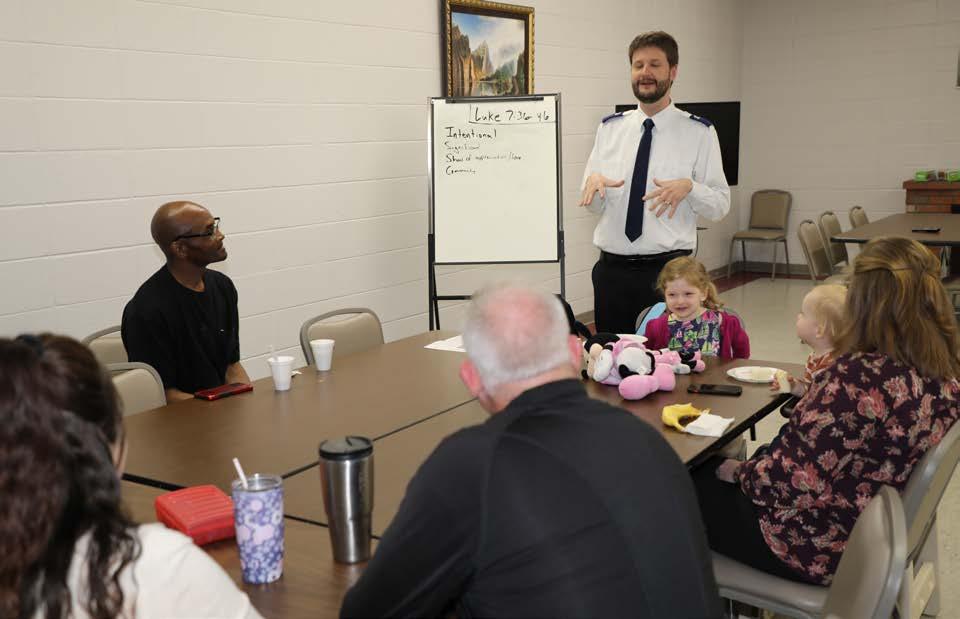
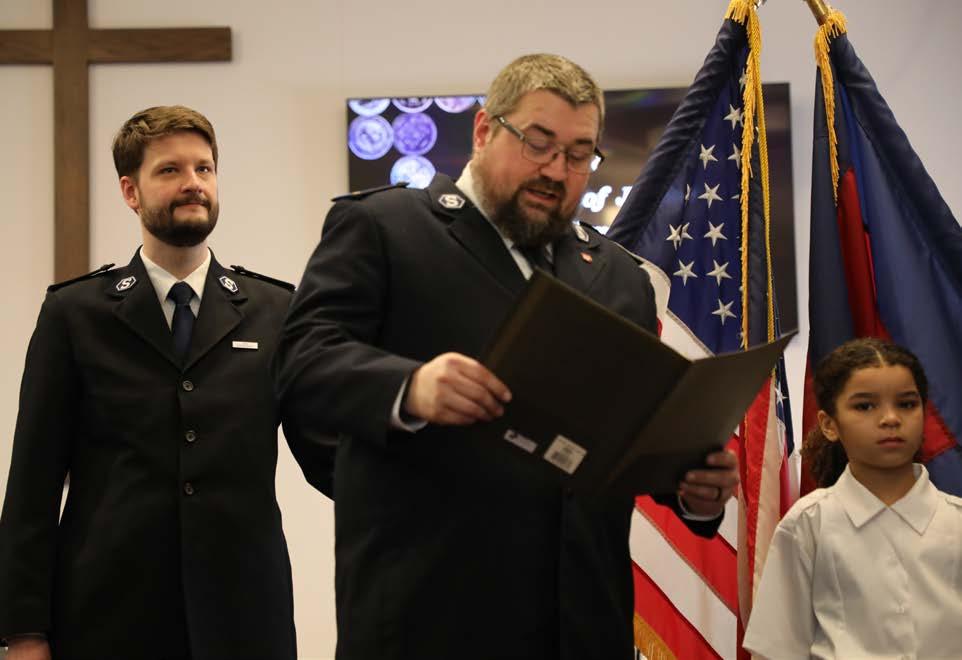
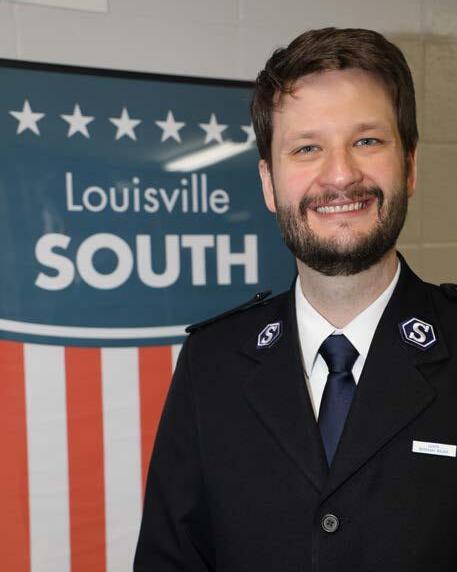
Dan declares two reasons why he is still attracted to the Army.
“First, in this point of my life, it’s the promise of free and creative expression of my faith,” he explains. Pointing to the Army’s amazing history of innovative forms of evangelism, Dan sees a strand—there since the beginning of the Army and vital to its origins—that is woven into our movement.
“It’s not freedom to promote heretical no
tions,” he explains, “but it is an acknowledgement of the promise that expressing faith and faith practices in ways that may be different from ‘Army-barmy’ tradition shouldn’t immediately lead to ostracism.”
His second attraction to the Army is the mission—namely, meeting human needs in the name of Jesus Christ without discrimination.
“This may seem idealistic to some or too vague to others, but I have been taught two important things that impact how I read our mission statement.
“One is that the full Christian life is lived for others . As pure a motive as it is to want to be more like Christ, the goal is only fully achieved when I serve others. Meeting the needs of others, however large or small those needs are, is essential [to one’s growth in Christ].”
In addition, Dan reads into the mission statement that “God cares about the small, the insignificant, the mundane, and the regular.”
Among many examples in the Bible, he cites a dirty cave filled with smelly animals that became a holy place through God’s presence, or Jesus’ touch of an unclean peasant whom He restored to the Kingdom of God.
“All people” and “without discrimination” are two phrases that proclaim the Army’s allegiance to the universal sanctifying work of the Spirit, he adds. “This is attractive to me. The Army recognizes the same thing the Lord recognizes: there is value in the simple things and [among] common people.”
Nevertheless, Dan’s life has not been perfect. That impression would be an oversimplification, he insists.
Dan and his family have experienced unbelievable heartbreak. He has even asked God on occasion, “Where were You?” But God responded that He was there all along, and that Dan needed to stop running away from pain in a vain attempt to find an immediate solution.
“I learned surrender—not just in the hope that it brings joy, but in the knowledge that [in this life] there will be pain.”
Today, CSM Dan Duncan strives to be a man closer to God, an even better husband, and a better father to his two beautiful children—a far cry from the little boy who gave his heart to Jesus on the side of a busy highway.
“God still teaches me simple truths!”
Dan Duncan serves as U.S. Flagbearer for the enrollment of Kyra Lawhorn, the newest junior soldier of the Louisville South Corps.
Dan Duncan teaches the adult Bible class.
Dan Duncan is the corps sergeant major of the Louisville South Corps in the Kentucky-Tennessee Division.
‘Lunch & Learn’ Program Develops Youth Leaders
BY BRAD ROWLAND
During their past appointments at National Headquarters, Majors Matt and Jamie Satterlee, now territorial youth secretaries, took note of an innovative decision by Captain Mike Hanton and the Central Territorial youth department. Captain Hanton and his staff moved to conduct regular meetings with divisions and local leaders via Microsoft Teams, ensuring things were operating smoothly while staying time effective. In the Southern Territory, that idea helped lead to a new initiative which was launched in August: Youth Down South Lunch & Learn.
The Lunch & Learn resource is open to any Salvation Army leader, ranging from officers and employees to soldiers and local officers. The initial launch is set for 12 scheduled sessions, once per month, and sessions are intentionally held during the lunch hour in the Eastern Time Zone for flexibility and convenience for attendees.
“One of the things we hear all the time is that people are having challenges with either finding enough leaders or training the leaders they do have,” says Major Jamie Satterlee. “This is a pairing of the need and a concept that we think can help with that. We don’t want people trying to wait for EQUIP every two years for leadership training.”
“We really want it to be practical. Information-driven. 45 minutes. In and out,” Major Matt Satterlee comments. “We know we can’t hit it all in 45 minutes, but we’re giving a big overview, and we’re always going to linger around at the end if people have questions. That can be another way to set up personal interactions and get feedback.”
Individuals pre-register for the next session each month to avoid “spamming” attendees who may not seek to participate in every session. This also allows invitations to be targeted to interested parties, and there is a wide range when it comes to subject matter.

The first session held in August was an overview of the Corps Cadet program. September focused on a follow-up from the camping season with special guest instructor, Orange specialist Jackie Raihl. The 12-session run will also focus on mental health, how to teach kids about Lent and Easter, Vacation Bible School, Summer Day Camp preparation, and many more topics.
Major Matt Satterlee also notes the territorial youth department has a revamped staff of subject matter experts to utilize as instructors and facilitators in the Lunch & Learn discussions, referring to the endeavor as a “total team effort.”
Each session begins with prayer before pivoting to the topic at hand and attempting to manage time effectively. Department leaders are monitoring the chat option during each session and providing real-time support with answers to questions and the ability to share links to existing resources. Sessions are also captured for use after the fact for anyone interested who cannot attend in real time, and conversations can be taken offline for more depth.
“We really think of this as a logical way to help and resource the field,” says Major Matt. “It’s another touch point, and that can help.”
Registration for each session is available until the discussion begins, and this is also a nocost, no-travel way to share best practices within

The Salvation Army. Beyond the ability to distribute information and educational resources, Lunch & Learn also acts as another way to establish and continue valuable relationships.
“We’ve seen that the Lunch & Learn can be a way to build community between youth leaders,” notes Major Jamie. “Even in the first session, there was a good back and forth between relatively new employees in different divisions that had similar questions. That seemed to put them at ease and remind them that they aren’t alone in this ministry.”
“There is really a dual focus and goal for us,” she continues. “One thing is asking how we can alleviate the pressure the field is feeling. They need leaders, but leadership development takes time. So how can we help to take some of that burden away in leadership training? And then we also really believe in youth ministry. We want people to be as equipped as they possibly can be. Youth ministry is not easy, so how can we equip people to feel empowered to do this? It can be intimidating sometimes, and we want to come alongside leaders and empower them.”
The next session is scheduled for October 17 with a focus on the newly created family Advent material. Further details and registration information can be found at www.youthdownsouth.org/lunch-and-learn.

PROMOTED TO GLORY
Lt. Colonel Wesley Faulkner
Lt. Colonel Wesley Faulkner was Promoted to Glory on August 4, 2024, at the age of 96.
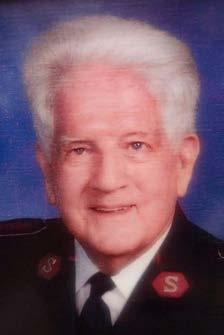
Francis Wesley Faulkner was born in Chicago, IL to officer-parents Major and Mrs. William E. Faulkner on April 2, 1928. His parents came from England to serve as corps officers in Canada, and later in the Central and Southern Territories in the United States.
Francis entered the training college in Atlanta from St. Petersburg, FL, where he had faithfully served as songster leader. He was commissioned in 1949 as a member of the Peacemakers session of cadets. His first corps appointments were to Savannah, GA; Miami Citadel, FL; and the West Gate Outpost in West Palm Beach, FL.
On April 2, 1951 (his 23rd birthday), he married Captain Mary Maxine (Pat) Patrick in Atlanta. As a couple, they served together in field appointments in Gulfport and Columbus, MS; and Baton Rouge, LA; followed by a post as divisional music director in the Georgia Division.
In August 1963, they returned to corps officer assignments in Huntington, WV; and Bradenton, FL. They were sent to the Southern Territorial Headquarters in January 1966, where he served as territorial finance department assistant. He became chief accountant in 1968, and assistant finance secretary in 1974. Further promotions came in 1978 as territorial finance secretary, and in 1988 he became secretary for business administration.
Lt. Colonel Wesley studied accounting at Louisiana State University and earned both his bachelor’s and master’s degrees in business administration with majors in finance and management at Georgia State University.
The colonel was chairman of the National Finance Commission for ten years and chaired the National Business Administration Commission/ Conference for five years.
He attended the International College for Officers in London in 1979, and also attended Brengle Institute in Chicago.
After over 40 years of faithful service for Lt. Colonel Wesley, and over 50 years given by Lt. Colonel Pat, they entered honored retirement on June 30, 1993.
Post retirement, Lt. Colonel Wesley served at the Adult Rehabilitation Center in St. Petersburg, FL, working in intake. Eventually he became chaplain, a role he held for more than 20 years. He was dearly loved by all staff and program participants throughout his many years of service.
Lt. Colonel Wesley Faulkner was preceded in death by his beloved wife of over 64 years. He is survived by his three sons: William (Elaine) Faulkner, John (Susanne) Faulkner, and James (Diane) Faulkner; as well as several grandchildren and great-grandchildren.

Soundcast Shows Now on LifeAudio
Beginning September 2024, Soundcast’s flagship shows—Words of Life, Heartbeat, Palabras de Vida, and Latido—joined Salem Media Group’s LifeAudio Christian network of podcasts.
Salem Media Group is a market leader in Christian and conservative media. Salem owns 100 radio stations across the country including The Fish. About four years ago they launched a new Christian podcast network, LifeAudio. This network is home to chart-topping shows like Your Daily Prayer, The Becket Cook Show, and Crosswalk Talk.
Soundcast’s relationship with Salem Media Group goes back several years through marketing opportunities across their radio stations as well as through LifeAudio.
“I’ve been searching for and praying about the next step in our programs’ development. I never want us to get too comfortable and stagnant. And while we are so grateful for our radio station partners, we are seeing more and more opportunities as we focus on the podcast side of our ministry,” says Chris Benjamin, director of production and operations for Soundcast.
Earlier this year, Benjamin began to discuss new opportunities with their Salem representative, Kathleen Bensi. She sent Tommy Lynch, director of content acquisition at Life Audio, some samples of Soundcast’s shows, and he immediately thought this network would be a great home for these programs.
“It was so encouraging to have meetings
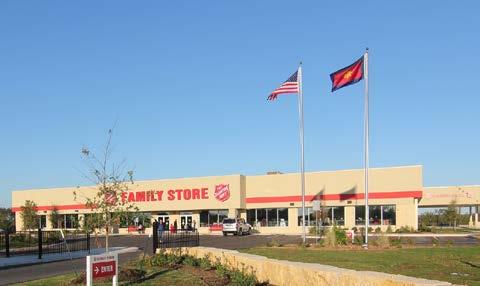
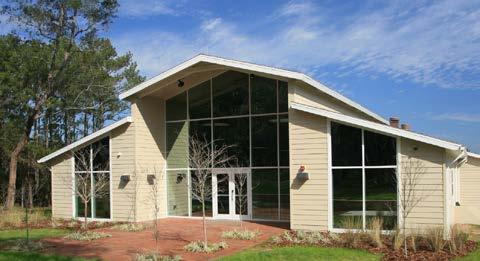
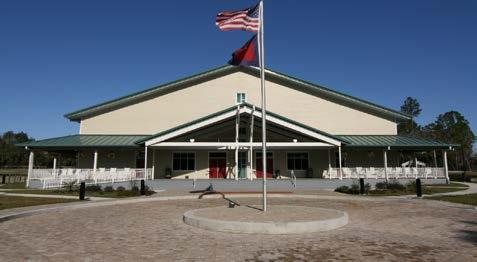

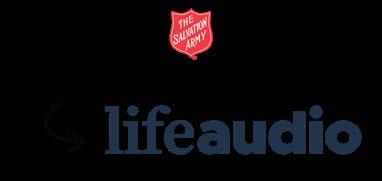
with LifeAudio’s team and hear them genuinely excited about what they heard when listening to Words of Life. It was just more confirmation that the changes we’ve continued to make with this show have been in the right direction,” Benjamin says.
This new partnership will allow Soundcast’s programs to be seen by a much larger potential audience. LifeAudio will also assist Soundcast in promoting these programs within their network of shows and to current listeners of their other programs. The move to LifeAudio will be seamless for current listeners; the only addition to your experience will be occasional advertisements, much like how Soundcast currently shares internal ads. But now you may even hear ads for your local grocery store. This will allow the territory to offset more costs associated with the production of these shows.
To learn more about this partnership, listen to the Words of Life episode from September 8, 2024. To learn more about Soundcast’s ministry and shows, visit salvationarmysoundcast.org. For more on LifeAudio, you can visit lifeaudio.com.
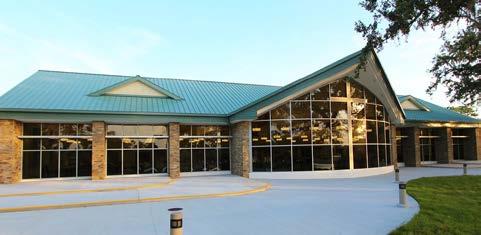

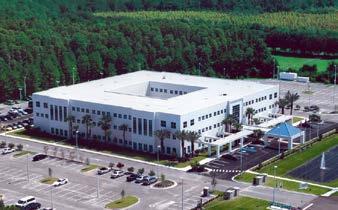
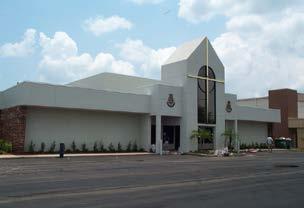
St. Hagop Armenian Church Pinellas Park,
Lutz, FL
Salvation Army Family Store, San Antonio, TX
Camp Keystone Holiness Center Starke, FL
Camp Keystone Dining Hall, Starke, FL
Camp Keystone Cabins, Starke, FL Florida Suncoast ARC Chapel St. Petersburg, FL
Camp Keystone Multipurpose, Starke, FL
THQ Hosts International Zonal Secretaries
BY KRISTIN MUDGE
The Southern Territory recently had the honor of hosting our International Secretaries for the Americas and Caribbean Zone, Commissioners Kenneth and Cheryl Maynor, for our USA Southern Territorial Review.
While in Atlanta, Commissioners Maynor had the opportunity to visit several Salvation Army locations, meet many wonderful officers, employees, and cadets, and see firsthand the amazing ways God is moving in the Southern Territory and utilizing His Army to love, serve, and disciple in our communities.
On August 18, Commissioners Maynor joined many officers from the Evangeline Booth College (EBC), Adult Rehabilitation Centers (ARC) Command, Metro Atlanta Area Command, Georgia Division, and Territorial Headquarters (THQ) in a Sunday worship service at Atlanta Temple Corps followed by lunch at the EBC where they spent the afternoon with EBC staff and cadets.
On Monday, August 19, following a time of devotions, the territorial leadership presented the “State of the Territory,” an overview of our mission priorities and objectives including divisional summaries, highlights from the last three years, our response to the Covid pandemic, and our goals moving forward. This was followed by presentations from various THQ departments and sections over the next couple of days, covering everything from candidate recruitment and employee retention to investment status and social services highlights.
All of THQ paused on Wednesday, August 21, for their weekly “Family Time,” with employees and staff officers gathering together for a few moments to greet Commissioners Maynor and enjoy a time of worship and devotion.
“It has been our overwhelming joy to be among you, so thank you so much,” Commissioner Cheryl said in greeting. “We thank God for you. And it’s been wonderful to hear what the Lord is doing here and around the territory.”
She then eloquently provided a window into the global Salvation Army, highlighting special ministry opportunities and specific prayer concerns happening in the other international zones. “There are so many incredible things happening in the Army world. It’s just amazing we get to be part of this international fellowship.”
In the Africa Zone, she spoke of The Salvation Army’s schools in Tanzania for children with special needs, overflowing past capacity but still welcoming young people in need. This zone especially requests prayer for the safety of albino children who are targeted for use in witchcraft and ritual sacrifice.
For our own Americas and Caribbean Zone, Commissioner Cheryl requested prayer against the gang violence in Haiti and highlighted the Army’s work in Port-au-Prince where corps officers are utilizing children’s programs to begin generational change.
In the Europe Zone, prayers continue to be needed for Russian and Ukrainian officers who may be compelled into military service. Their leadership rejoices that a sports program in Norway for those in recovery from substance abuse is currently flourishing. The program started with five teams and now has 38. It encourages participants to stay in recovery and mentor others as they begin their own recovery journeys.
The South Asia Zone is preparing to launch a Salvation Army Leadership Training (SALT) college. There have been many challenges along the way, but tailoring learning materials for their various cultures has been one of the most difficult tasks.
The South Pacific and East Asia Zone rejoices in the strong teaching ministries in the Solomon and Marshall Islands, open to anyone who wants to learn. A 63-year-old woman was recently able
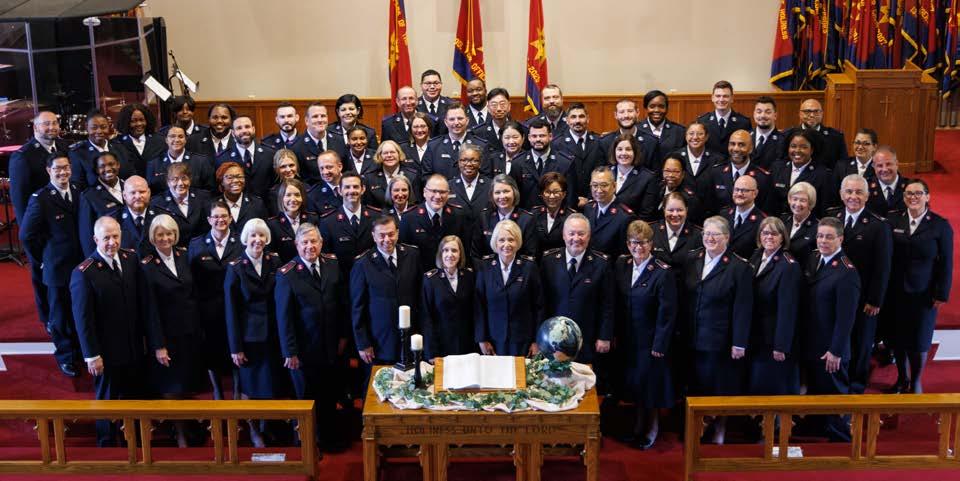
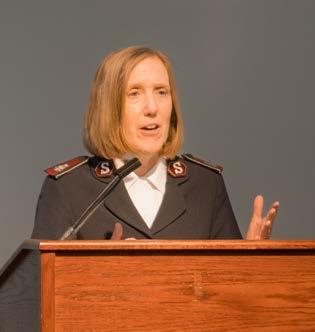
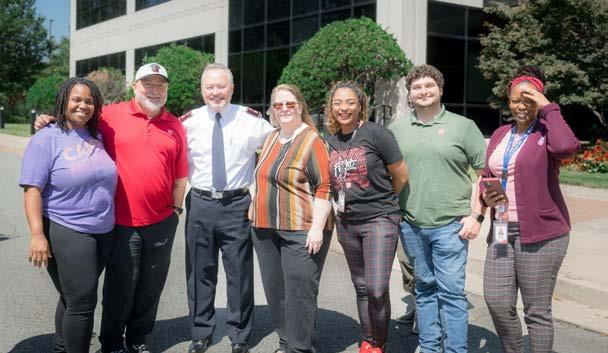
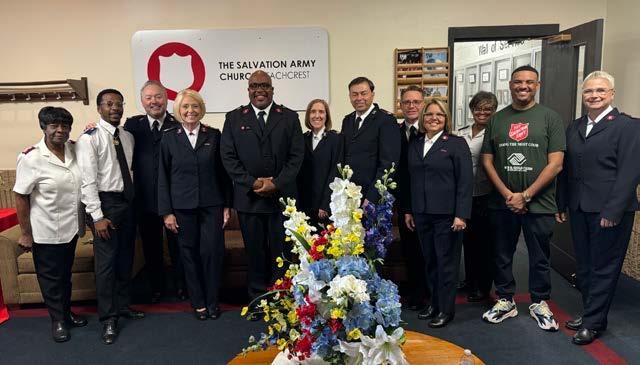
to write her name for the first time in her life!
“When Jesus said, ‘I will build my church,’ It wasn’t for a season, it wasn’t for that time, it’s now. Jesus is continuing to build His church. And nothing will prevail against that,” Commissioner Cheryl said. “Whether there’s persecution, imprisonment, court rulings against us, oppressive governments, gangs that take over the country, witches in Africa, it doesn’t matter. Jesus said, ‘I am. I will. I’m continually building my church.’ And what a beautiful opportunity for us as Salvationists to be a part of that.”
Lt. Colonel Carolee Israel, territorial secretary for spiritual life development and officer development, led those present in a prayer for these global requests. “We pray for your peace around this world. Where your gospel is being preached, the enemy is evident, so we pray for power and your peace over us today.”
Commissioner Donna Igleheart, territorial president of women’s ministries, closed the group’s time together saying, “Thank you, Commissioner Cheryl, for giving us an insight into our brothers and sisters and the beautiful, effective ministry that’s taking place around the globe through The Salvation Army… Today you have given us a glimpse into the ministry that our hearts are moved by.” Turning to the South -
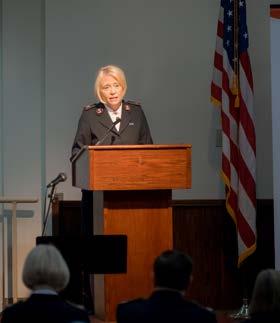
ern Territorial staff officers and employees, she continued, “What you do matters; you’re a part of this. And for that, we want to say thank you.”
Commissioners Maynor finished off their review with a few more presentations and focus groups before a final meeting with the territorial cabinet. They then traveled to several Atlanta Salvation Army locations including the Atlanta Kroc Center, Atlanta Peachcrest Corps, Bellwood Boys & Girls Club, and the Atlanta Adult Rehabilitation Center before concluding their visit back at the EBC.
In a message to all THQ officers and employees, Commissioners Kelly and Donna Igleheart and Chief Secretary Colonel Deborah Sedlar thanked everyone for their preparation and participation in the review process. “Through the presentations and conversations which took place, our international secretaries have come to experience the vibrant and mission-focused USA Southern Territory.”
As an additional thank you, the territorial leaders provided all THQ staff officers and employees with a food truck lunch, showing their deep appreciation for the diligent work and ministry they provide not only for the review process, but for The Salvation Army USA Southern Territory every day.
Commissioner Donna Igleheart reminds THQ employees their work has a greater impact than they may see day-to-day.
THQ leadership and Commissioners Maynor enjoy a time of fellowship with the staff of the Peachcrest Corps and Boys and Girls Club.
Commissioners Maynor spent time with the staff and cadets at the EBC during their visit.
THQ leadership thank all staff officers and employees for their preparation and participation in the territorial review process.
Commissioner Cheryl Maynor provides THQ officers and employees with a window into the international Salvation Army.
